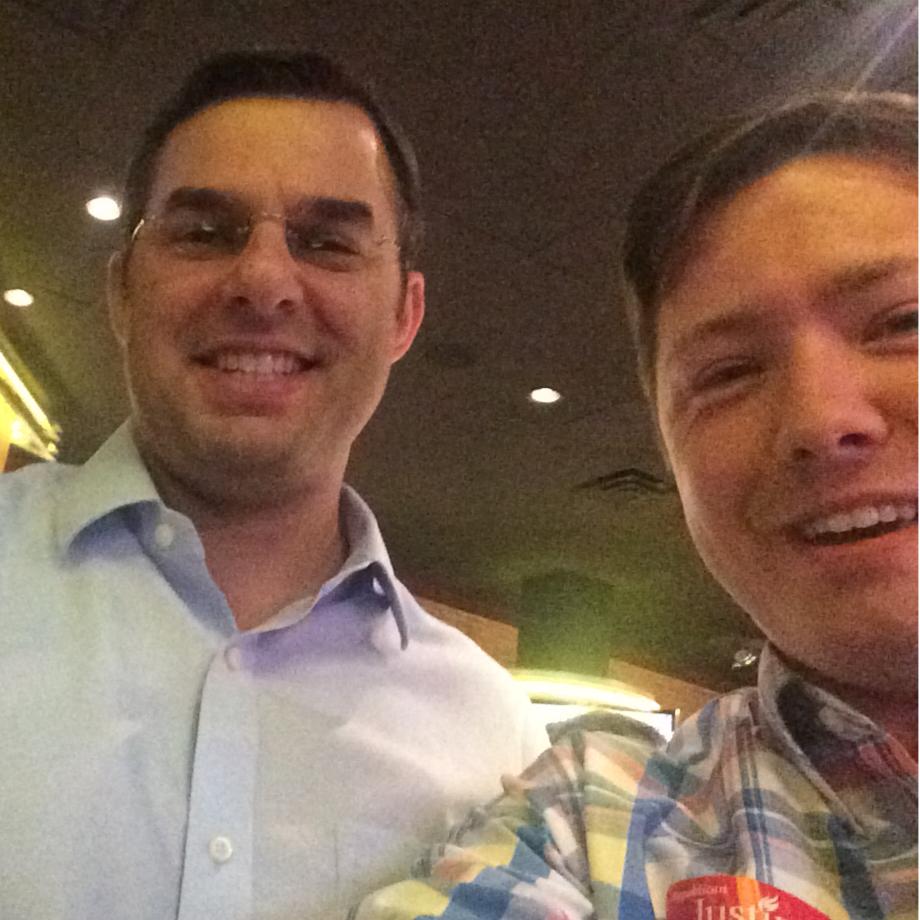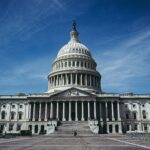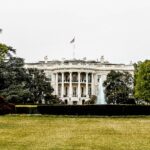Profiles in Liberty: 22 Questions with Matt Hurtt

Matt Hurtt, Outreach Manager for Terra Eclipse in Washington, DC, one of the nation’s leading web design companies, recently sat down and tackled 22 questions designed to get to know young leaders in the liberty movement both professionally and personally. Here’s Matt in his own words:
Part 1: What I do
How I describe my job in 10 words
Writer, activist for liberty. Professional connector. Grassroots teacher. Movement grower.
My day-to-day at work…in three sentences
I am the Outreach Manager for Terra Eclipse, a web design company based in D.C. and California. In that capacity, I develop relationships with potential partners and see where Terra Eclipse can provide our services. This means lots of networking.
I couldn’t do my job without
My strong network of friends, professional connections, and allies.
Most important moment in my career (so far)
Honestly, being offered a full-time position at the Leadership Institute working with college students right after graduation in 2009. It forced me to leave my hometown and dive headfirst into the liberty movement.
Unexpected skill that has helped me the most
I really hate networking — the kind of insincere DC-style networking I see all too often. But I’m really good at developing meaningful professional and personal relationships with people in this movement. And then I love connecting those people with other people who can help advance their careers and advance liberty.
The best advice I have received
Always go above and beyond in your professional career. Have your employer think, “We can’t do [X job] without you.”
Part 2: Politics
The biggest change I’ve seen already in politics
I’m seeing a real shift take place among young Americans who are embracing liberty and getting involved in politics. Not all young people are liberals, and our movement has really grown since 2007/2008.
The element of working in politics that most surprised me
How much “just showing up” and knowing the rules can work to your benefit. So few people just show up and know what they’re doing.
The most important issue many don’t see yet
The $17 Trillion+ national debt gets talked about, but it’s such a large number that no one can comprehend it. Current debates don’t fully communicate the massive problem the national debt is, and I honestly don’t think our government is going to do anything about it.
Where I think the liberty movement will be in five years
We’re currently at a tipping point. More and more Americans realize they hate government regulations — food trucks, Uber, Airbnb are all flourishing in the face of attempts to regulate them out of existence. I think we can have the most positive impact helping move the ball toward more liberty against the regulatory state.
How I formed my political beliefs
I always sort of was conservative/libertarian. But a man named Clarence Jaeger (now deceased) gave me my first copy of Frederic Bastiat’s “The Law,” and that set a philosophical foundation for my beliefs on the role of government.
Part 3: The next generation
What I’d say to my 18-year-old self
Take more 8am classes in college. Also, learn how to channel your passion into being the most effective activist you can be.
Skill or experience I’d recommend students get now
Really develop your written and oral communication skills. In most jobs (both in and out of politics), employers want someone who can communicate their ideas in an easy-to-understand way. Practice writing, join a Toastmasters organization.
Three things I’d tell every young political junkie to read
1. The Law, Frederic Bastiat
2. Capitalism and Freedom, Milton Friedman
3. Rules for Radicals, Saul Alinsky
My most useful class in college
All my upper division political science courses where my professors were liberal. They challenged me in the classroom, and made me understand why I believe what I believe.
Three people to watch from the liberty movement
1. Julie Borowski (Token Libertarian Girl) — her videos make libertarianism easy to understand.
2. Justin Amash — he’s in our generation and is the leading voice in Congress on pro-liberty issues.
3. You — you have the ability to make change through our movement, and I encourage you to do that.
Part 4: Me, personally.
The thing you do when you don’t want to talk about politics
I enjoy live music and karaoke, whiskey, and cigars – but not necessarily in that order.
My heroes in fiction
Randy Bragg, Alas, Babylon (Pat Frank)
Dale “Barbie” Barbara, Under the Dome (Stephen King)
Atticus Finch, To Kill A Mockingbird (Harper Lee)
I read mostly non-fiction these days.
The most inspiring art I’ve read, seen, or heard
There is/was a giant portrait of LL Cool J in the National Portrait Gallery that inspires me. And I really like how good rappers manipulate the English language in their music. L’il Wayne and Eminem are great lyricists.
I’d star in House of Cards or West Wing (choose one)
House of Cards, UK Version
I can’t get through my day without
My iPhone; I know, I hate to admit it, too.
Why is America’s Future Foundation important to the movement?
AF provides a number of programs and opportunities that help advance professional development. From opportunities to showcase writing to panels and networking events, I am consistently impressed with what AF offers its members and how it works to bring us together.
Patti Simpson is director of political and career services at the Leadership Institute.




